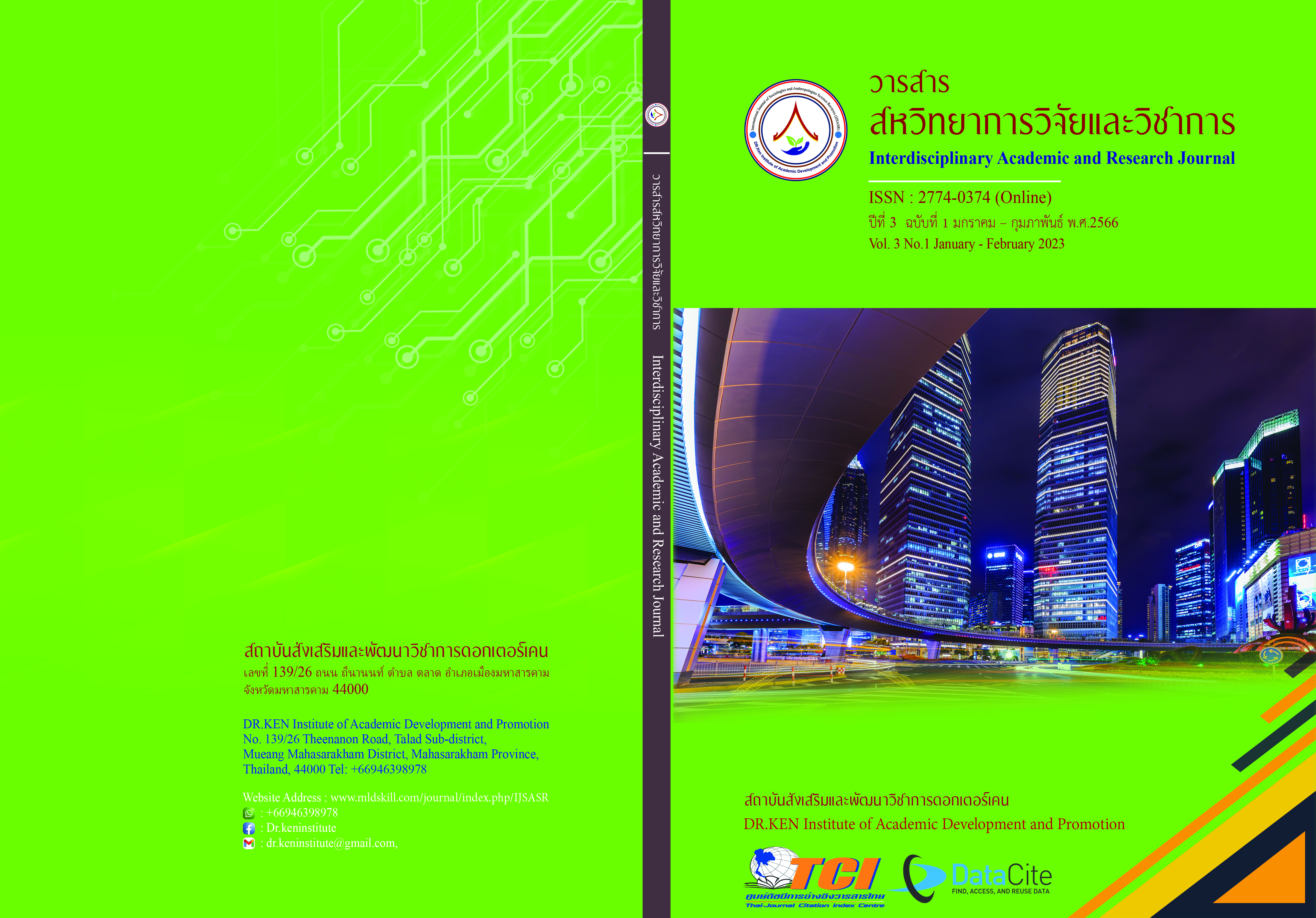Conceptual Politics of the Development of Identity of Political Science in the Future
DOI:
https://doi.org/10.14456/iarj.2023.3Keywords:
Form of Developmental Identity; , Political Science; , Conceptual PoliticAbstract
The work of political scientists since the inception of the field in the United States is the work of creating an identity in the study of politics with the Scientific Method, officially known as “Behavioral Science”. This work is the quality that makes political science different from other disciplines. After political education has transitioned into the post-behavioral science era until now, for a total of 53 years, political science education is still classified in the former era, that is, there is no identity of the disciplines that are unified like the behavioral science era. Thus, the research paper aimed (1) to review and analyze the form of the developmental Identity in Political Science, and (2) forecast the identity of political science in the future. The scope of this research has been carried out from 1950-2022 and reviewed the status of knowledge in Political Science. The research methodology was documentary research to collect the key informant's political scientists who published a status assessment and provided an oral history of political science. Data analysis and management by conceptual politics. The results showed that a form of identity-building political science is a political system in which the environment influences the input of demands into the planning process and coming out as a result to be the development of identity in the era of behavioral sciences or post-behavioral sciences and rational choice theory. Therefore, the future of the identity of political science will predict that the identity of political science will form when approaches are composed of simplicity, broad application, formalizable, familiarity, and marginality.
References
ชัชพันธุ์ ยิ้มอ่อน. (2553). การวิพากษ์รัฐศาสตร์แนวพฤติกรรมศาสตร์ตามกรอบแนวคิดของเจอร์เก็นต์ ฮาเบอร์มาส. กรุงเทพฯ : คณะรัฐศาสตร์ จุฬาลงกรณ์มหาวิทยาลัย. DOI: http://doi.org/10.14457/CU.the.2010.255
ชัชพันธุ์ ยิ้มอ่อน. (2564). การแปลงมโนทัศน์ทางการเมืองเพื่อสร้างชาติไทยของพระบาทสมเด็จพระมงกุฎเกล้าเจ้าอยู่หัว. วไลยอลงกรณ์ปริทัศน์. 11 (1), 39-48.
ไชยรัตน์ เจริญสินโอฬาร. (2557).รัฐศาสตร์แนววิพากษ์. กรุงเทพฯ: สำนักพิมพ์มหาวิทยาลัยธรรมศาสตร์.
ไชยันต์ ไชยพร. (2560). จอน เอลสเตอร์กับทฤษฎีการเลือกอย่างเป็นเหตุเป็นผล. พิมพ์ครั้งที่ 2. กรุงเทพฯ: Way of Book.
อนุสรณ์ ลิ่มมณี. (2543). พัฒนาการ แนวคิด และวิธีการศึกษาทางรัฐศาสตร์. ใน หลักและวิธีการศึกษาทางรัฐศาสตร์. สำนักพิมพ์มหาวิทยาลัยสุโขทัยธรรมาธิราช (1-40). มหาวิทยาลัยสุโขทัยธรรมาธิราช
Almond, G. A. (1966). Political Theory and Political Science. The American Political Science Review, 60(4), 869–879. https://doi.org/10.2307/1953762
Easton, D. (1985). Political Science in the United States: Past and Present. International Political Science Review, 6(1), 133–152.
Goodin. R. (2011). The Oxford handbook of political science. Great Clarendon Street: Oxford.
Hindmoor, A., & Taylor, T.Y., (2015). Rational Choice (Political Analysis). 2nd edition. London; New York: Palgrave Macmillan.
Lowndes. V, Marsh, D., & Stoker, G. (Eds.). (2018). Theory and methods in political science. USA: Palgrave.
Marsh, D., & Stoker, G. (Eds.). (2002). Theory and methods in political science. USA: Palgrave.
Downloads
Published
How to Cite
Issue
Section
License
Copyright (c) 2023 ชัชพันธุ์ ยิ้มอ่อน, วรรณลดา กันต์โฉม, พัชราภรณ์ สุวรรณกูฏ

This work is licensed under a Creative Commons Attribution-NonCommercial-NoDerivatives 4.0 International License.
Copyright on any article in the Interdisciplinary Academic and Research Journal is retained by the author(s) under the under the Creative Commons Attribution-NonCommercial-NoDerivatives 4.0 International License. Permission to use text, content, images, etc. of publication. Any user to read, download, copy, distribute, print, search, or link to the full texts of articles, crawl them for indexing, pass them as data to software, or use them for any other lawful purpose. But do not use it for commercial use or with the intent to benefit any business.
















.png)


